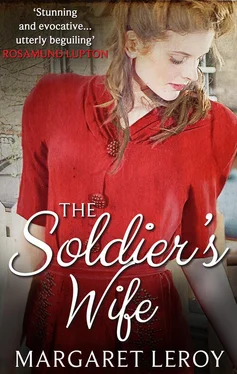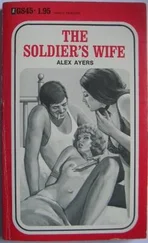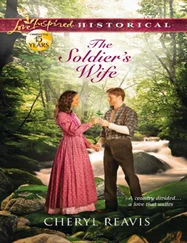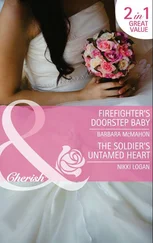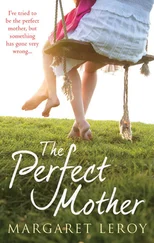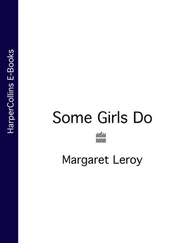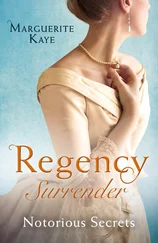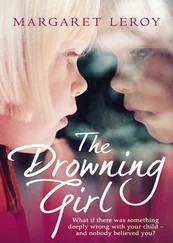‘We don’t know who it was,’ I say.
The thought appals me—that somebody was just waiting for us to leave, watching the house and scheming and taking their chance. Seeking a way to profit from the anarchy of war. And I’m upset by the destructiveness of it, all the spilt flour and the breakages, as though it was just a game to them, as though they enjoyed what they did. I hate that.
Blanche is seized with anger—that nothing has happened as she dreamed it.
‘You see, Mum? I was right, we should have gone to England. We could be on the boat by now. We could be sailing.’ She’s furious with me: her eyes are hard as blue flints. ‘It’s going to be awful here. Worse than ever,’ she says.
‘We’ll be all right, sweetheart,’ I say. ‘It doesn’t matter that much. We can manage without the china dogs, and the silver eggcups were such a nuisance to clean. At least they haven’t taken our books …’
‘So why do you sound so unhappy, Mummy?’ says Millie.
I don’t say anything.
Blanche rips off her winter coat and flings it onto a chair. She stares down at herself, at the hem of her taffeta dress, which is crumpled and dark with rainwater.
‘Look. It’s all ruined ,’ she says.
Her eyes are shiny with tears.
‘Blanche—your dress will be fine. We’ll hang it up so it doesn’t crease. It’s only water,’ I say.
But I know she isn’t talking only about the taffeta frock.
I go upstairs and look around, in the girls’ bedrooms, and Evelyn’s, and mine. Nothing has been disturbed here; it looks as though the burglars didn’t come this far. But I have to be certain. Le Colombier is a big old rambling house, a labyrinth. The many people who have lived here have built onto it over the years: there are rooms leading into one another, twisty passages, places where you could hide. I hunt around everywhere—open up all the cupboards, explore all the secrets and hidden ways of my house. I climb right up to the attics, to the big front attic we use as a spare bedroom, and the little one at the back, that you reach by a separate stair. All is as it should be. At last I come down to the girls again, and send them off to unpack their bags.
I clear up the mess, the shards of china crunching under my feet. A feeling like grief washes through me, and not only because of the things that are broken or lost. This doesn’t feel like our home now, since the intrusion: it feels wrong, smells wrong, in that indefinable way of a place where someone unwelcome has been. Everything is falling apart—all the intricate warp and weft of the peaceful life we have lived here: everything unravelling. They haven’t come yet, but it has already begun.
I put together a meal with some food that hasn’t been touched by the burglars—a loaf of bread I forgot to throw out, a tin of corned beef. After we’ve eaten, I walk up to Les Ruettes to bring Evelyn back home. Millie comes with me. The rain has stopped and the sky is starting to clear. There are still great banks of cloud that look as solid as far countries, but now between the heaps of cloud, there are depths and reaches of blue. The hedgebanks are drenched, and the air is rich with musky, polleny scents—wild garlic, wet earth, violets. I breathe in gratefully. The foxgloves brush against us like hands, and there are pale briar roses, each holding a drop of clear water. The little ferns that love the damp flicker like green tongues of flame.
As we near the door of Les Ruettes, Alphonse slinks out from behind a glasshouse and circles around Millie, arching, purring resonantly.
Frank le Brocq comes to the door, a cigarette clamped between his lips. He’s wearing his check cloth cap; he takes it off when he sees me. A splinter of amusement floats in his eye.
‘We saw you come back. Cold feet?’ he says.
‘Yes. You could put it like that.’
I feel awkward. There’s something shameful about returning like this: it suddenly feels like an act of cowardice—not a reasoned decision, more a failure of nerve.
He takes a long drag on his cigarette and looks me up and down, in his appraising way that I don’t quite like.
‘That cat of yours wouldn’t settle,’ he tells me. ‘He kept going back to your house. Cats are like that, cats are territorial creatures. A bit like you lot.’ He grins.
Millie picks up Alphonse and wraps her arms around him.
‘Did you miss me?’ she says.
The cat rubs his head extravagantly against her.
‘Look, Mummy, look, he knows what I’m saying. He really missed me,’ she says.
Frank stands aside, and we go into the kitchen. Angie is kneading dough on her table; she greets us with a smile. Evelyn is on the settle where I left her, still sitting upright on the edge of the seat.
‘Vivienne.’ There’s a puzzled look in Evelyn’s face, as though her life is a knotted tangle she can’t begin to undo. ‘Well, you didn’t take long.’
‘We’re taking you back home,’ I say. ‘We changed our minds. We didn’t go in the boat.’
‘Least said, soonest mended,’ she says.
I feel a little surge of unease. She often gives me this feeling now—that the things she say sound normal, yet somehow they don’t quite make sense.
I turn to Angie.
‘Thank you so much …’
‘Don’t you worry, Vivienne. I was more than glad to help out … Let’s hope you made the right decision,’ she adds, a little doubtfully.
‘Well, time will tell,’ I say vaguely; then think that I owe her some explanation, after everything that she has done for me. ‘The thing is—it was such a little boat. And it’s such a long way …’
We walk back slowly down the lane. I take Evelyn’s arm to help her. A bird calls with a sound like a pot being scraped, and the moist air is cool on our skin. Millie tries to carry Alphonse, but the cat wriggles down and scampers off through the fields, heading for Le Colombier. Millie slips her hand in mine.
‘I’m glad we came back home,’ she says, her voice fat with contentment. ‘I didn’t really want to go. It’s nice here, isn’t it, Mummy?’
‘Yes, sweetheart.’
But even as I say it, a little tremor goes through me. Above us the clouds retreat, regroup, creating new shapes in the sky—new countries, new islands.
On Friday I cycle up to town.
The streets are empty because so many people have gone, and some of the shops are boarded up, but otherwise St Peter Port feels much the same as always, calm and orderly in the warm June sunshine—as though the panic of the evacuation hadn’t happened at all. I buy a lamb joint, and stock up on coffee and cigarettes and tea. Such luxuries may become rather harder to buy—when they come, when it happens.
I come to Martel’s watch and clock shop, where Blanche’s friend, Celeste, has been working since she left school. I glance in through the window, wondering whether she’s gone, and she sees me and waves vigorously, her glossy dark curls dancing. I feel so happy for Blanche because her friend will still be here. In Grand Pollet, I pass the music shop that belonged to Nathan Isaacs; this is one of the shuttered shops. Nathan left a while ago, before the fall of France, saying that he could see which way the wind was blowing, a rueful smile on his clever, diffident face—talking about it so lightly. I miss him. We grew friendly because of the shop, where I’d often go to buy music. He was a good musician, a violinist, and sometimes I’d play duets with him at one of his music evenings, up at Acacia Villa, his tall, graceful house on the hill.
I go to the library, where I choose a new Elizabeth Goudge, and then on to the haberdasher’s to buy more wool for Evelyn. I can’t get her balaclavas and gloves to the Forces any more, but at least the knitting keeps her occupied. And I stop off at Boots on the High Street to buy a first lipstick for Blanche—wanting to give her a bit of glamour, something to make her happier, now I have snatched her dream of London from her.
Читать дальше
